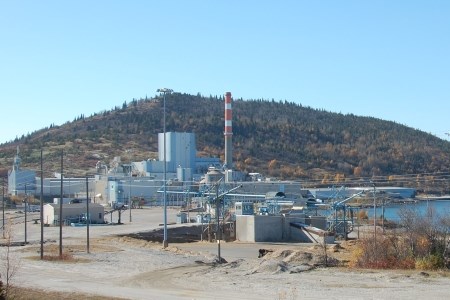The mayor of Marathon is calling out Queen's Park over its glacial bureaucratic pace in awarding unused Crown fibre to Northern Ontario communities and companies.
Rick Dumas is frustrated by government delays and the secrecy in rolling out the Provincial Wood Supply Competition Process. It would free up 11 million cubic metres of underutilized wood across Ontario to be put to work for value-added projects.
Northern Development, Mines and Forestry Minister Michael Gravelle had hoped to announce the successful proponents last summer, but the ministry has been swamped with more than 100 applications.
Dumas said the extended wait could hurt their chances to secure private investment for new economic development activities.
“We finally went public because we've had many meetings with the government and the timelines they set out were unrealistic,” said Dumas. “We gotta get people back to work.”
Marathon Pulp closed in 2009, resulting in the loss of 200 jobs. The brownfield site on Lake Superior has since undergone considerable environmental clean-up.
The town has teamed up with nearby Manitouwadge and Pic River First Nation in a joint provincial submission to locally manage the Big Pic Forest unit.
Two prospective companies want to redevelop the shuttered mill site, but neither project can proceed as a bankable venture without a long-term supply of wood.
One company, Rentech, is a California fertilizer maker that wants the mill to convert woody biomass into aviation fuel.
Another company, Protocol Biomass of Toronto, has equally ambitious plans to make a special “torrefied” wood pellet and sell it to European power producers as a coal substitute.
Dumas said he's made it clear to Gravelle that Marathon doesn't want to see wood leaving the area without any benefit to local communities.
“We want to have transparency and sustainability for the people in the communities surrounding the forest.”
The ministry reported that the first batch of offers went out Nov. 23. The prospective proponents have 30 days to accept the province's offer. The identities of the winning applicants will be made public by month's end or early in the new year.
In an interview, Tom Logan, president of Protocol Biomass, was careful not to criticize the government but admitted that after a year of waiting, his patience is running out.
“The credit worthiness of anybody in this marketplace is demarked by a long-term fibre contract.”
Logan said if they can obtain fibre through the community joint venture, they can reach out to power producers in Ontario, the U.S. Midwest and Europe to start showcasing their product.
His company's $100-million proposal includes a 17-megawatt co-generation unit which would provide heat and power to the plant as well as for a district heating plan for the town's hospital, municipal offices, shopping mall and other commercial users. Logan wants to be in possession of the propety by March.
The operation would start out producing 100,000 tonnes of pellets annually and create 75 plant jobs, then ramp up to more than 500,000 tonnes and employ 125. They also intend to create a “biomass campus” by partnering with a major Canadian university with a “global reputation” for its interest in the emerging bio-economy.




